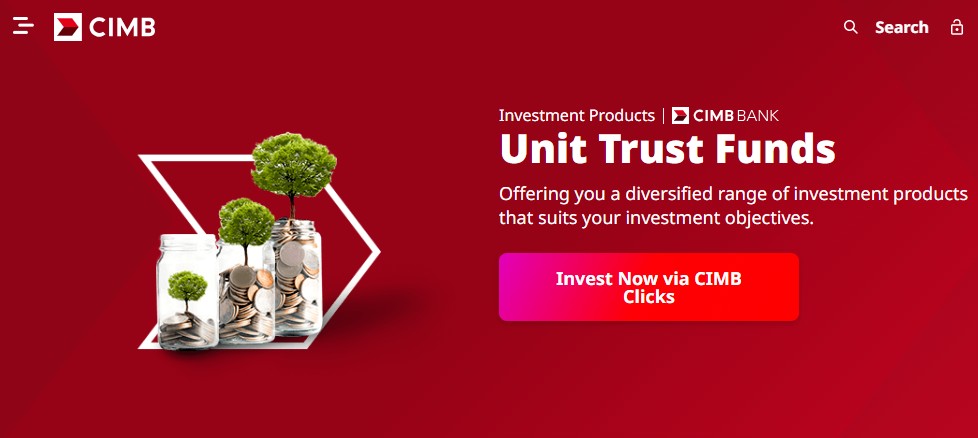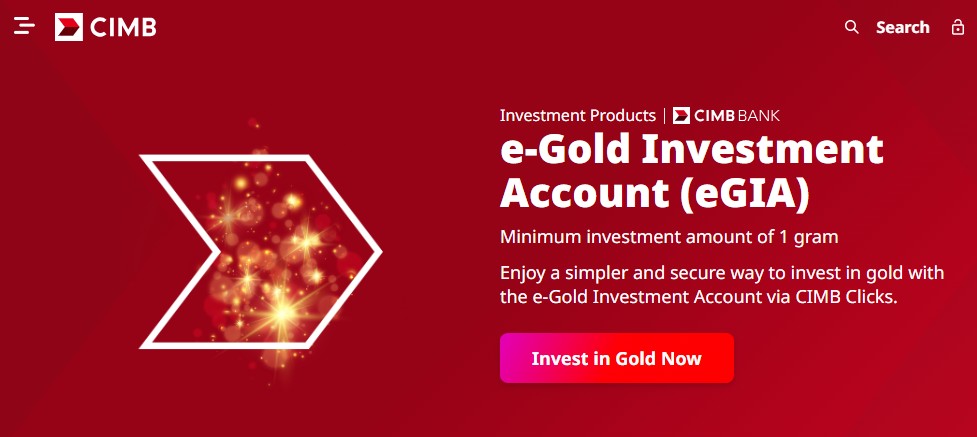FinTech
7 Things to Know Before Investing Your First Unit Trust in Malaysia
Published
6 months agoon
By
Samuel Ting7 Things to Know Before Investing Your First Unit Trust in Malaysia
 If you’re thinking about diving into unit trust in Malaysia, congrats—you’re making a smart move. I remember the mix of excitement and nerves from my first investment. You probably have questions like, “What’s a unit trust, anyway?” or “How much will it cost me?” I’ve been there, and I’ve learned a few key lessons along the way.
If you’re thinking about diving into unit trust in Malaysia, congrats—you’re making a smart move. I remember the mix of excitement and nerves from my first investment. You probably have questions like, “What’s a unit trust, anyway?” or “How much will it cost me?” I’ve been there, and I’ve learned a few key lessons along the way.
Let’s walk through seven facts every first-timer should know—so you can start investing smart, confidently, and (mostly) stress-free. Feel free to explore our other content about different types of investment in Malaysia.
1. Unit Trust = Team Investment Fund
Ever heard of what unit trust is? Imagine pooling money with friends to buy a selection of investments. Instead of buying individual stocks, you buy units in a unit trust fund. A professional manager handles all the buys and sells, and your investment grows or shrinks based on the UT fund price, also known as NAV (Net Asset Value) per unit.
For example: If NAV is RM1.20 today, your RM1,200 investment gets you 1,000 units.
2. Bigger Players and Why They Matter
 In Malaysia’s unit trust, public mutual is a big name—they manage tons of money and offer various fund types: equity, bond, balanced, or money market. But they’re not the only players—CIMB, RHB, and AmInvest are strong too.
In Malaysia’s unit trust, public mutual is a big name—they manage tons of money and offer various fund types: equity, bond, balanced, or money market. But they’re not the only players—CIMB, RHB, and AmInvest are strong too.
- Most of the unit trust fund charges around 1.2% annual management fees.
- Some may offer lower rates, closer to 0.8%, depending on fund type and performance, also active/passive management of fund holdings (adjustment on the allocation based on market situation)
Before you jump in, compare management fees—even half a percent adds up over time.
3. Track UT Fund Price, Don’t Freak Out Over Daily Fluctuations
Every business day, NAV updates—like the market price of your fund units. NAV changes every day doesn’t mean that you have to monitor it closely every single day. Instead of focusing on the hourly changes, watch the 3–5 year trend. That long view helps avoid knee-jerk reactions when prices dip. However, do take note that if you are investing in a fund which holds a higher volatility ranking, you might need to keep an eye on the performance every six months.
4. Find the Right Fund Type for You
Here’s the lineup:
- Money Market: Low risk, low return—good for saving short-term. Flexibility to withdraw anytime as the rate doesn’t fluctuate too much. It’s almost similar to a fixed deposit, except that it is not protected by PIDM.
- Bond / Fixed Income: Moderate returns with lesser fluctuation compared to equity funds.
- Balanced: A mix of growth and stability, usually half of the holdings allocation will be in bond papers with another half allocated in equities.
- Equity: Higher risk, higher reward—not all will give you a taste of rollercoaster ride, but equity in certain sectors will. For instance, finance, utilities and F&B stock price fluctuate less as public need towards financial service, utilities and F&B are relatively more consistent. In comparison, stocks in technology, construction, commodity-linked sectors might have higher volatility due to drastic turn of market needs towards the sector.
I started with a balanced fund, then eased into equity once I grew more comfortable with the ups and downs.
5. e‑Trust = Investing via Your Phone
 No need for paper forms. With e-trust available in Malaysia, you can:
No need for paper forms. With e-trust available in Malaysia, you can:
- 💳 Invest and track your unit trust fund from the app.
- Use monthly auto-debits (even RM100/month).
- Switch or redeem funds (rules apply, of course).
Once I set up my e-trust app, I stopped worrying about missing paperwork—and I could check my NAV on the bus ride to work. Nowadays most of the banks have offered online subscription service for unit trust, so it’s just a click away. For safety reasons, it’s recommended to start your investment journey with regulated banks or licensed fund management institutions as there are plenty of fraud investment schemes on the internet too. Consult a financial institution before you invest if you doubt the validity of the scheme.
6. All the Fees You Shouldn’t Ignore
Fees are real. Here’s what to look out for:
- Sales charge: 3 – 5.5% upfront.
- Annual management fee: Usually 0.5%–1.8%.
- Redemption fee: If you sell units too early (eg within 3 months after subscription), watch for 1% or more.
7. Avoid Rookie Investing Mistakes
Here’s what I would tell my past self:
- Don’t chase hot past returns. A fund that doubled last year might flop this year.
- Understand your risk profile. I panicked when my all-equity fund dropped 10%. Balanced would’ve suited me better early on.
- Invest regularly. Monthly investments smooth out the ups and downs.
- Rebalance. If equity grows too fast in your portfolio, shift money to bonds or cash.
- Keep an eye on switching limits. Free switches help, but too many may incur fees.
Extra Tips You Won’t Read in Brochures
- Banks/ fund management institutions frequently offer free online workshops—they helped me grasp key concepts without feeling lost.
- Referral bonuses exist: refer a friend, and you both get RM50–200 credited.
- Decide if you prefer dividend-payout vs reinvested—I chose the latter for long-term growth, but payout works if you want regular income.
My Portfolio After One Year
- Before: I invested RM5,000 in an equity fund; NAV dipped, and I panicked.
- After: I switched to balanced, set RM200 monthly auto-debit, and never checked my investments daily.
- Result: NAV is up 8%, and I’m less stressed—and more knowledgeable.
Final Thoughts
Starting with unit trust Malaysia doesn’t have to be intimidating. With small monthly deposits, knowledge of fees, and the right e-trust tools, you can build a solid, flexible investment habit—even as a beginner.
Here’s what matters:
- Choose a fund that matches your risk comfort.
- Keep track of all fees and how they affect your returns.
- Automate and forget—track longer-term performance.
- Stay consistent and rebalance when needed.
You’re about to embark on a long journey toward financial growth. Welcome aboard—and may your investments bring both progress and peace of mind!
FAQs for Unit Trust Newcomers
Q: Is unit trust Malaysia safe for beginners?
A: Yes. They’re regulated and diversify your money across assets—not like picking one stock and praying it soars.
Q: Can I switch funds at any time?
A: Generally yes, but check limits and fees.
Q: How do I monitor my unit trust fund?
A: Use the fund manager’s app or e-trust portal to check NAV, performance, and reports.
Q: Are there bonuses for referrals?
A: Many funds offer referral incentives; Public Mutual offers up to RM200.
Q: Can students invest?
A: Yes. Most allow ages 18–70. It’s smart to start young and let compounding work in your favor.

Top 5 Malaysian Bank Stocks Offering the Highest Dividend Yields

Seeing Home Differently: How QNED Is Redefining Everyday Entertainment

Do More in Less Time With Business Tools That Actually Work

Foreign Education Consultants and Strategic Application Planning

How Much Is a Full Synthetic Oil Change?

Why Investing Apps Are Becoming the First Choice for New-Age Retail Investors

What companies look for when choosing conference rooms in Bournemouth?

Best Way to Send Money from Singapore to Malaysia (2026 Guide)

Why are Young Professionals Choosing a 2 BHK Flat for Sale in Bangalore?




